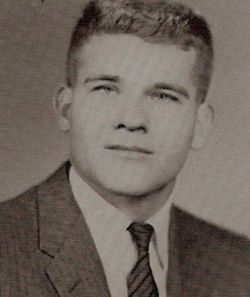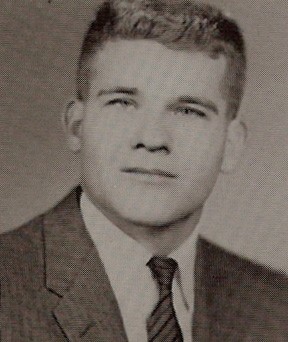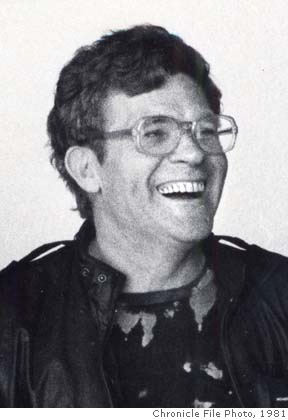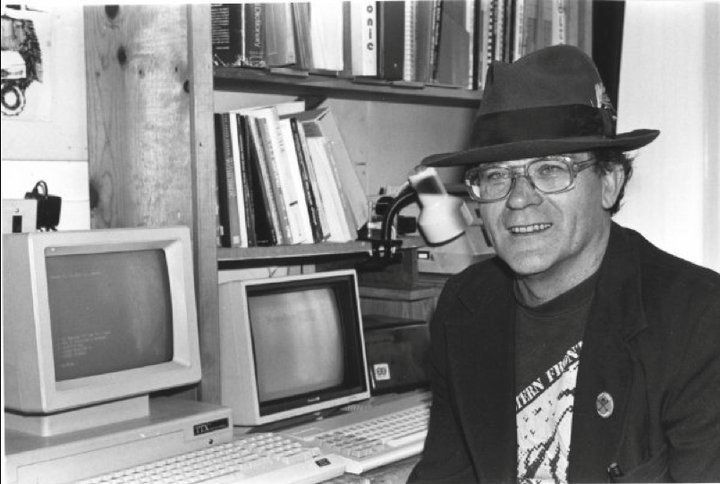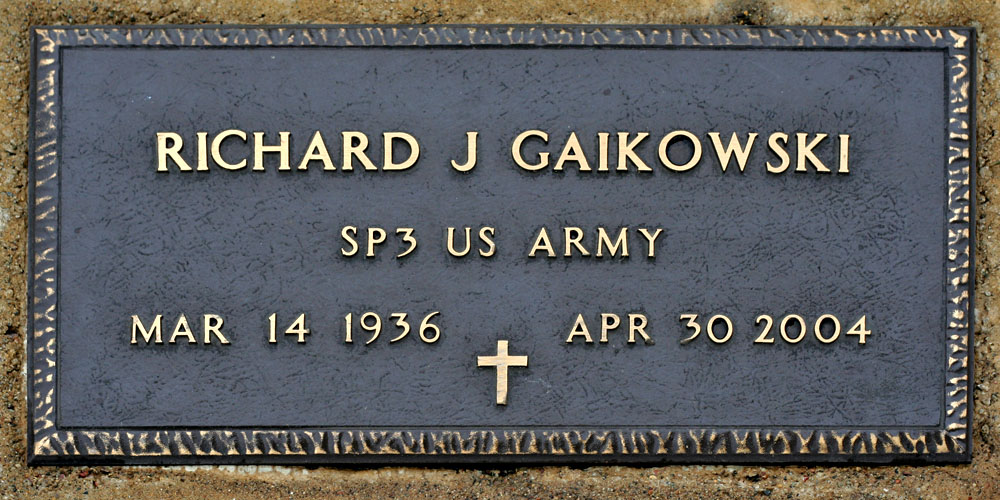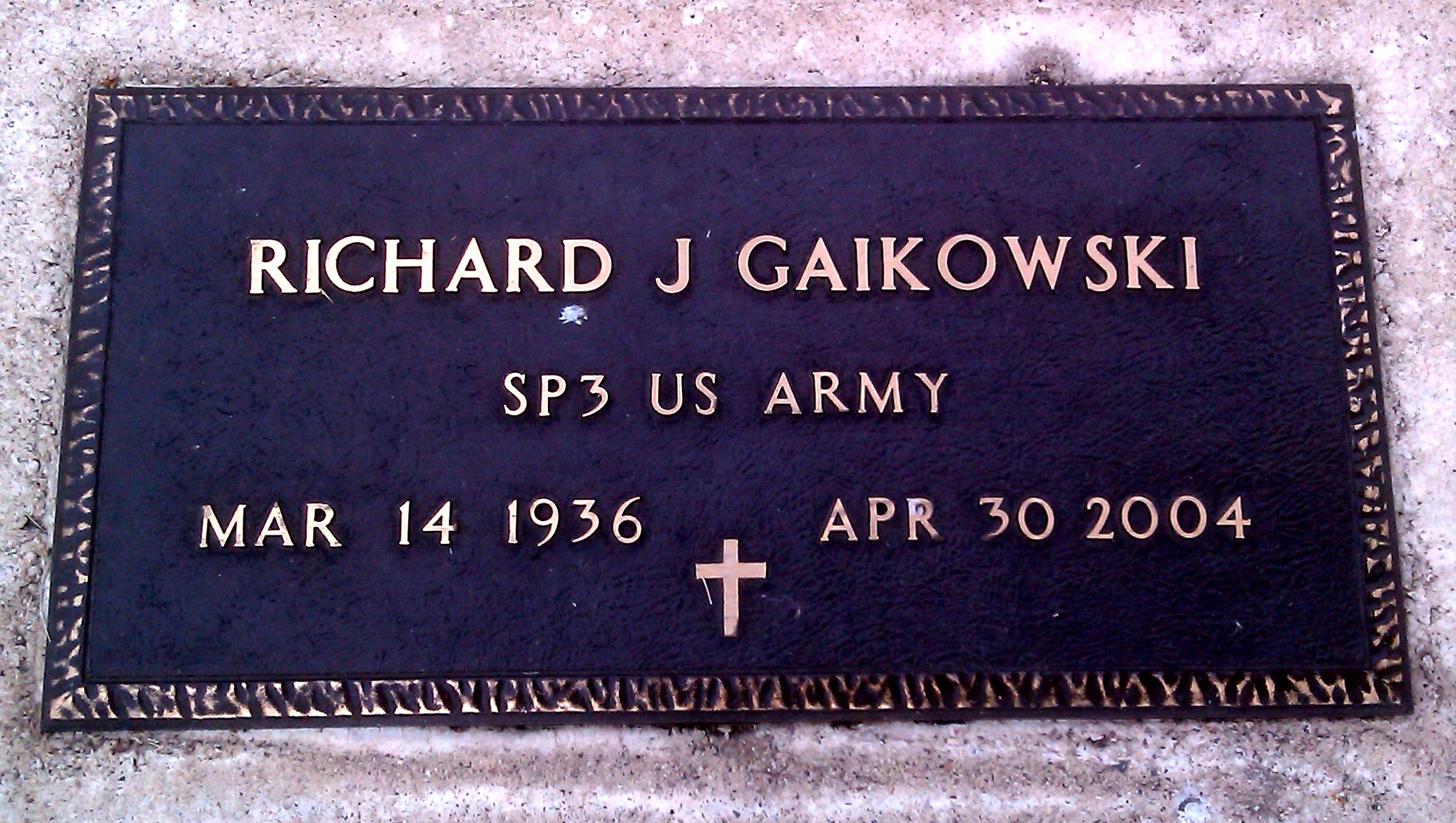Richard Gaikowski, who left his tiny South Dakota town to see the world and ultimately found that world in the eclectic stew of San Francisco's psychedelic era as a writer and filmmaker, died Friday in San Francisco.
Mr. Gaikowski was born in Watertown, S.D., and raised in Webster, S.D. He graduated from Webster High School in 1954, spent a year at Northern State College (now Northern State University) in Aberdeen, S.D., then was drafted. His two years in the Army, largely spent as a medic, opened his eyes to the possibilities of the world outside South Dakota. After the Army, he finished up at Northern State, did a brief stint as a press aide to then-Gov. Ralph Herseth and lit out for the east.
He fetched up at the (now defunct) Albany Knickerbocker-News, in upstate New York, where Fred LeBrun, now a columnist for the Albany Times-Union, remembers Mr. Gaikowski for "a series he did here on migrant workers. He spent about three weeks as a migrant worker -- this was the age of the actuality reporter -- and he wrote a terrific, warm series.
"He was very much of an activist journalist," LeBrun said. "He was moved by all the issues of the time -- the Vietnam War, Kent State (University, where the National Guard killed four student protesters), the freedom rides, workers' rights."
But he left the paper in 1970 and moved to the Bay Area, stopping first at the Martinez newspaper, then moving to San Francisco and joining the thriving life in the Haight.
Mr. Gaikowski and the late Robert Evans took over a Mission district porno movie theater called the Roxie and converted it into an emporium for art films and independent movies. Mr. Gaikowski also formed One Way Films, a distribution company for independent films.
In the late 1970s, Mr. Gaikowski made his big film, "Deaf Punk," described in a 1981 Chronicle review of new wave films as "an enigmatic joining of a band called the Offs and their audience at the S.F. Deaf Club."
Mr. Gaikowski is survived by three sisters, Marian Zollar and Therese Boik, both of Webster, S.D.; and Lorraine Lesnar, of Millbank, S.D.; and a brother, Larry Gaikowski, of Peoria, Ariz.In 1976,
A celebration of Mr. Gaikowski's life will take place at 1 p.m. May 29 at 1035 Guerrero St., San Francisco.
This article appeared on page B - 7 of the San Francisco Chronicle
∼San Francisco writer/journalist, and filmmaker
SP3 US ARMY.
Richard Gaikowski, who left his tiny South Dakota town to see the world and ultimately found that world in the eclectic stew of San Francisco's psychedelic era as a writer and filmmaker, died Friday in San Francisco.
Mr. Gaikowski was born in Watertown, S.D., and raised in Webster, S.D. He graduated from Webster High School in 1954, spent a year at Northern State College (now Northern State University) in Aberdeen, S.D., then was drafted. His two years in the Army, largely spent as a medic, opened his eyes to the possibilities of the world outside South Dakota. After the Army, he finished up at Northern State, did a brief stint as a press aide to then-Gov. Ralph Herseth and lit out for the east.
He fetched up at the (now defunct) Albany Knickerbocker-News, in upstate New York, where Fred LeBrun, now a columnist for the Albany Times-Union, remembers Mr. Gaikowski for "a series he did here on migrant workers. He spent about three weeks as a migrant worker -- this was the age of the actuality reporter -- and he wrote a terrific, warm series.
"He was very much of an activist journalist," LeBrun said. "He was moved by all the issues of the time -- the Vietnam War, Kent State (University, where the National Guard killed four student protesters), the freedom rides, workers' rights."
But he left the paper in 1970 and moved to the Bay Area, stopping first at the Martinez newspaper, then moving to San Francisco and joining the thriving life in the Haight.
Mr. Gaikowski and the late Robert Evans took over a Mission district porno movie theater called the Roxie and converted it into an emporium for art films and independent movies. Mr. Gaikowski also formed One Way Films, a distribution company for independent films.
In the late 1970s, Mr. Gaikowski made his big film, "Deaf Punk," described in a 1981 Chronicle review of new wave films as "an enigmatic joining of a band called the Offs and their audience at the S.F. Deaf Club."
Mr. Gaikowski is survived by three sisters, Marian Zollar and Therese Boik, both of Webster, S.D.; and Lorraine Lesnar, of Millbank, S.D.; and a brother, Larry Gaikowski, of Peoria, Ariz.In 1976,
A celebration of Mr. Gaikowski's life will take place at 1 p.m. May 29 at 1035 Guerrero St., San Francisco.
This article appeared on page B - 7 of the San Francisco Chronicle
∼San Francisco writer/journalist, and filmmaker
SP3 US ARMY.
Family Members
Sponsored by Ancestry
Advertisement
Advertisement
